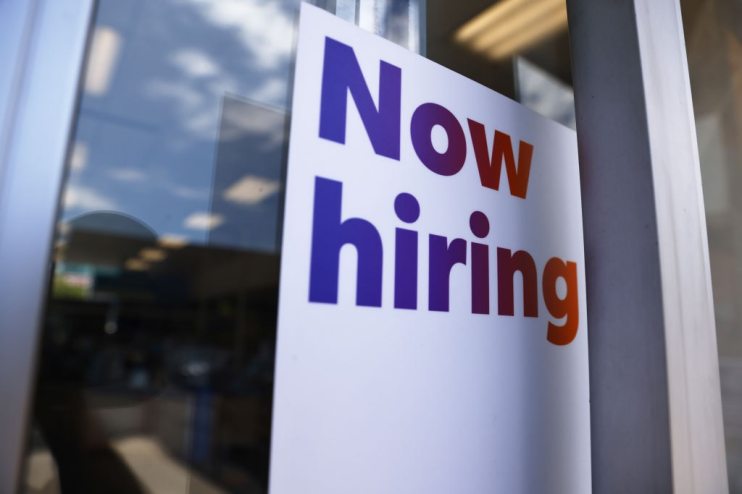Red hot jobs market strengthens BoE rate hike bets

A rebound in the UK jobs market back to pre-pandemic health is strengthening bets on the Bank of England hiking interest rates this year.
The number of payrolled employees climbed more than 200,000 over the last month, jumping to 29.2m in September, above its pre-pandemic level, according to the Office for National Statistics (ONS).
The Old Lady has stressed previously that a recovery in the UK jobs market is a key goal that needs to be met before it can raise rates. Unemployment edged back to 4.5 per cent.
Experts said the latest slate of data could give the green light for hikes this year.
Paul Dales, chief UK economist at Capital Economics, said: “The further tightening in the labour market and rise in underlying wage growth in August increases the chances of the Bank of England raising interest rates in the coming months despite other evidence that the economic recovery is spluttering.”
“A decent October jobs report could open the door to a hike as soon as the December meeting,” said Hussain Mehdi, a strategist at HSBC Asset Management.
The Bank did indicate at its last rate setting meeting it would wait for data on how the labour market responded to the end of the furlough scheme before making any decisions.
However, Kitty Ussher, chief economist at the Institute of Directors, highlighted a jump in unemployment is unlikely to happen.
“With the number of people reporting they are ‘away from work’ now at or even below pre-pandemic levels it seems unlikely that the end of the furlough scheme will cause the spike in unemployment that was previously feared.”
Markets frantically repositioned bets on when officials on Threadneedle Street will increase borrowing costs yesterday after two of the central bank’s key rate setters signalled their discomfort toward soaring inflation.
In separate interviews last weekend, governor Andrew Bailey and Michael Saunders, an external member of the Bank’s rate setting committee, gave the strongest signals yet the Bank will move to hose down fiery inflation.
Vacancies reached their highest three-month total on record, hitting 1.102m, the ONS said. Pay excluding bonuses jumped six per cent in the three months to August.
A paucity of workers has caused UK supply chains to snarl up and prompting firms to hike pay to clear vacancies, which is fuelling inflationary pressures. Wage driven inflation concerns are being compounded by soaring natural gas prices, which is hitting Brits’ incomes by hiking their energy bills.